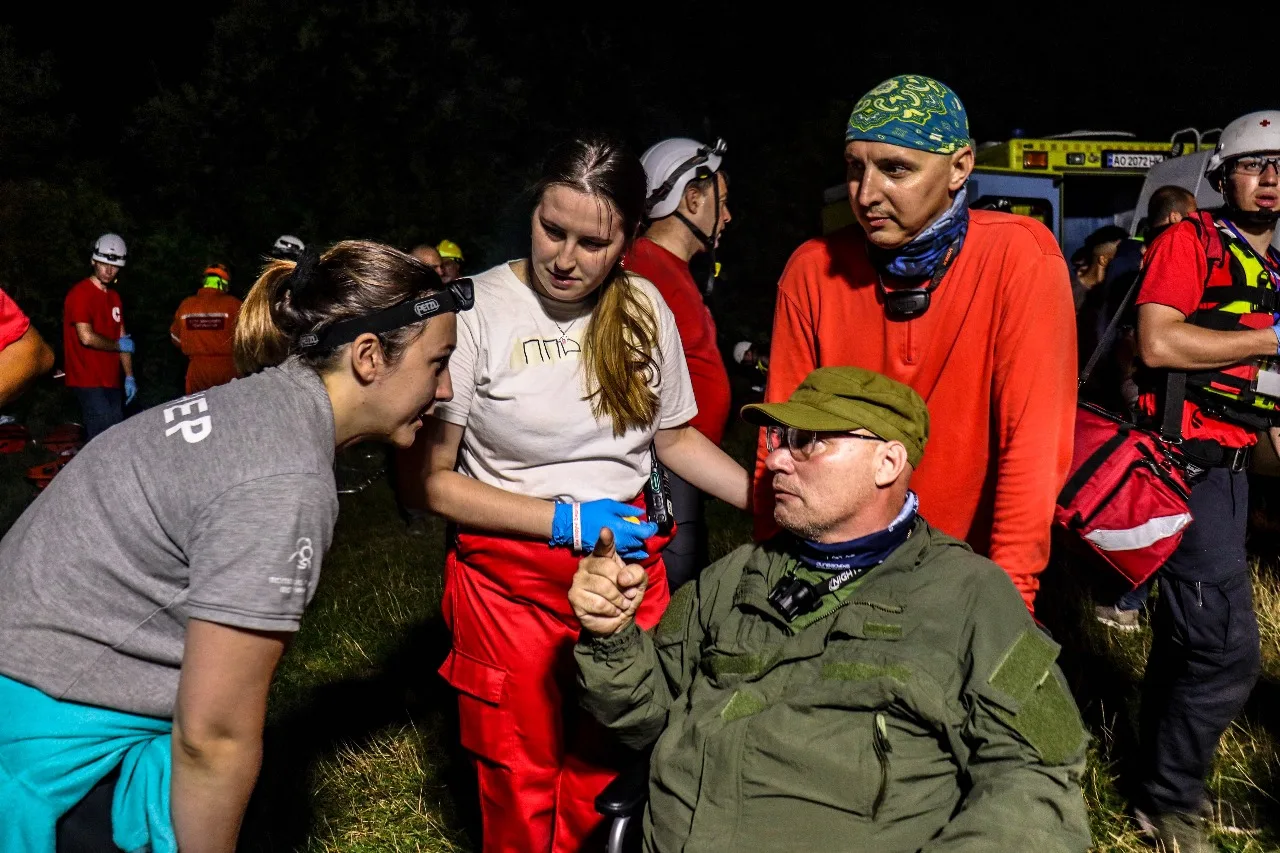The full-scale war in Ukraine is causing millions of people to experience stress, distress, and panic on a daily basis. In such circumstances, first psychological aid (FPA) becomes an integral part of basic care — just as important as first medical aid. And although it is often provided by specialists, anyone can support a person in crisis.
This was explained by Khristina Yasinska, a psychologist and head of the psychological support sector of the Ukrainian Red Cross Society:
“After a traumatic event, a person is often disoriented. Even the simplest actions are difficult for them. Our task is to make them feel that they are not alone, that there is someone nearby who can support and help them.”
Read also: Air raid sirens, panic and insomnia: how to cope with stress when Russian missiles are flying overhead
The goal of PS is stabilisation, not treatment
According to Yasinska, the main goal of PPD is to provide psycho-emotional support, reduce suffering and help people feel at least some control over the situation:
“Support should be calm and unobtrusive. We help people return to the “here and now” and reduce distress (a negative form of stress that occurs when stressors exceed the body’s ability to adapt, leading to psychological and physical exhaustion) without delving into the depths of their psyche or past.”
This clearly distinguishes PPD from psychotherapeutic intervention. While therapy involves working with deep-seated trauma and unconscious processes, first aid is a simple action in the here and now: caring, protecting, stabilising.
Three steps: look, listen, guide
The algorithm of actions can be roughly described as ‘Look. Listen. Guide.’
Look — assess the situation, make sure it is safe.
Listen — be there, help the person calm down, let them talk or be silent.
Guide — provide basic information, support them in seeking help if they want it.
“Safety first. If the person is frightened, take them away from the source of noise and find a quiet place. If they are cold, give them a blanket. And don’t force them to talk if they don’t want to. Sometimes just silence and your presence are enough to help,” emphasises Khristina Yasinska.
Read also: The psychological state of the military can be monitored through the Prism platform
Supporting children after stress
Although the basic principles of PPD are the same for everyone, how they are implemented depends on the person’s age. This is especially important in the case of children.
‘Children often react to stress through behaviour rather than words. They draw, play, become silent or overly active. Therefore, it is important to be attentive and gentle with them,’ explains Yasińska.
What to do:
Physical closeness and contact — if it is your child, hug them, stroke their back. If the child is a stranger, do not touch them immediately. Sit down, introduce yourself, and find an adult who is responsible for them.
Create a routine — returning to familiar activities creates predictability and a sense of control.
Simple explanations — be brief and honest: ‘There was a loud noise, but we are safe now.’
Give them the opportunity to play and draw — children experience emotions through play.
Don’t force them to talk — silence, drawings or play can be a form of expression.
Tears are normal — let the child cry, don’t stop them.
Watch for behavioural signs — bedwetting, nightmares, thumb sucking, excessive clinging — these are signals that your child is struggling.
Read also: Free medical care for veterans in Ukraine expanded
How to support teenagers
Teenagers experience stress differently: they withdraw into themselves, show anger or defiance, or, conversely, become overly sensitive. It is important to remember that they are no longer children and need a different approach.
“Respect their autonomy. Don’t try to “re-educate” them in times of stress. Just listen and support them. They will tell you what they need if they feel safe to do so,” advises the psychologist.
What to do:
Be slow and patient — don’t pressure them or force a conversation.
Provide physical comfort and a safe space — give them the opportunity to be alone or with you, without unnecessary witnesses.
Repeat information — important things may not be remembered the first time around.
Connect with loved ones — help the teenager get in touch with friends and family.
Trust their experience — acknowledge that what they have been through is important.
Read also: The invisible horror of Kherson. Killer drones against civilians
Helping older people in crisis
Older people may appear reserved on the outside, but they often need specific help — practical, domestic, logistical.
‘It’s hard for them to talk about their emotions. It’s better to find out if they have water, medicine, how they can get home. And just be there — it means a lot,’ explains Khristina Yasinska.
When working with older people, it is important to:
Be slow, clear and respectful.
Repeat important words.
Have support nearby (accompaniment, organisation of assistance).
Help with basic needs.
Returning to oneself — not to ‘normality’
Often after trauma, we strive to return to ‘normal life.’ But, as Christina Yasinska says, this is not entirely correct.
‘We do not return to the past. After a traumatic event, a person changes. We do not help them “return to normal”, but rather find stability in which they can continue to live, communicate, work and be part of the community.’
First psychological aid is the first step on this path. It does not require diplomas or special education — only attention, empathy, and humanity.
Read also: Artificial intelligence in the humanitarian sphere. How technology helps people



